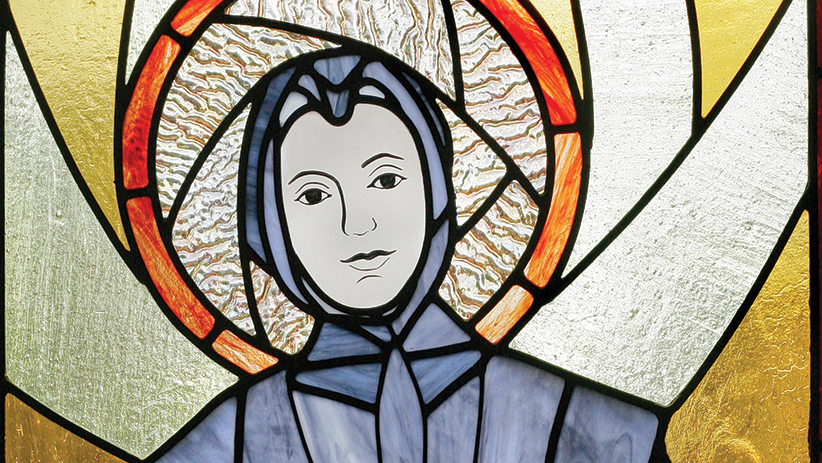St. Marguerite d’Youville’s early life set the stage, in many ways, for a path that would lead her one day to being called “mother of universal charity” by Pope St. John XXIII.
After her father’s death, her young life existed within the bounds of a poor, fatherless home. Although she would go on to found the Sisters of Charity of Montreal — also known as the Grey Nuns — the young St. Marguerite ruled out religious life after a few years at a boarding school operated by religious women. The experience provided her with a firm education and deepened her faith.
At age 20, St. Marguerite married François d’Youville in 1722. It was by no means an easy marriage. Her husband was frequently traveling for his business, which illegally sold liquor to the Native Americans in Quebec. To make matters worse, she was living with a domineering and harsh mother-in-law, living as if a captive in her own home. It was believed that St. Marguerite’s husband was adulterous on his work-related travels, but she lovingly and dutifully cared for him through his final illness. By age 29, she was a widow, and she experienced the death of four of her six children in infancy.
This was a period of great trial in her life. Throughout it all, though, St. Marguerite acted with the greatest charity and humility. She put herself completely in the hands of God, knowing his plan for her would lead to her fullest joy. They were times that strengthened her faith and relationship with God. Little did she know, this would lead her back to the life of a religious — a life she previously had turned down in her younger years in order to pursue marriage.
The widow operated a small store to provide for her two sons’ education; they both would go on to be ordained priests. During that time, St. Marguerite took a blind woman into her home. She developed a heart for the poor and sick — acutely aware of their needs — and responded to the Gospel mandate to care for the poor. Starting charitable work throughout the city on her own, quickly she was joined by others who desired to join in her work. Together they formed a community that became known as the Sisters of Charity in 1737.
St. Marguerite was a pioneer in many ways. She advocated and fought for the rights of the poor, even when this caused great personal hardship for her. Among the taunts aimed at her out of hatred for her heroic work was that the religious order she founded was sometimes called the “tipsy” or “drunk” nuns because of the stories associated with her deceased husband. The phrase in French — les soeurs grises — can be rendered as “the Grey nuns” as they are still known today.
Eventually called to put order into a Montreal hospital that was disintegrating and in need of dedicated leadership, St. Marguerite laid a foundation for her community’s outreach to untold numbers of the poor and sick throughout Canada in the decades and centuries to follow. After a fire destroyed her hospital a few years before the end of her life, St. Marguerite proceeded with faith and courage to rebuild.
In 1990, St. Marguerite d’Youville became the first native-born Canadian to be canonized a saint. Although mostly remembered for her life and work as a religious foundress and servant of the poor, St. Marguerite is mostly sought after as a patron in a variety of familial situations desiring her intercession: troubled marriages, widows and those with troublesome in-laws.
Her feast day is Oct. 16.
Michael R. Heinlein is editor of Simply Catholic. Follow him on Twitter at @HeinleinMichael.

